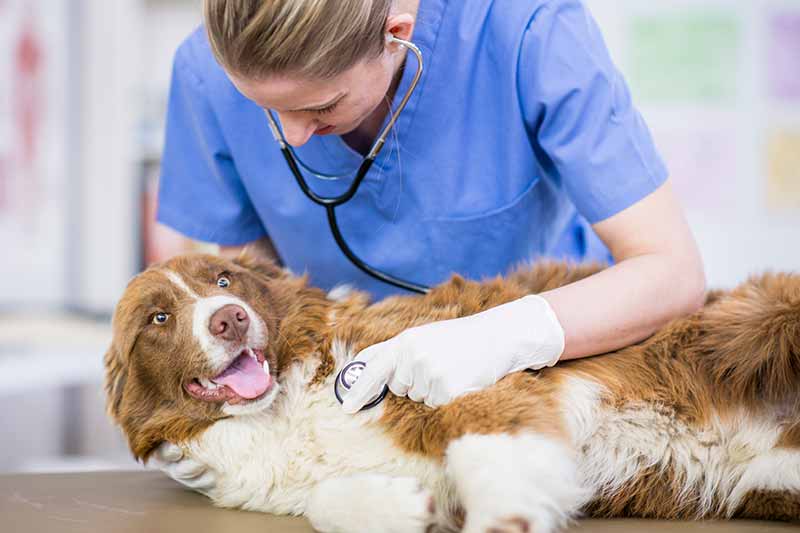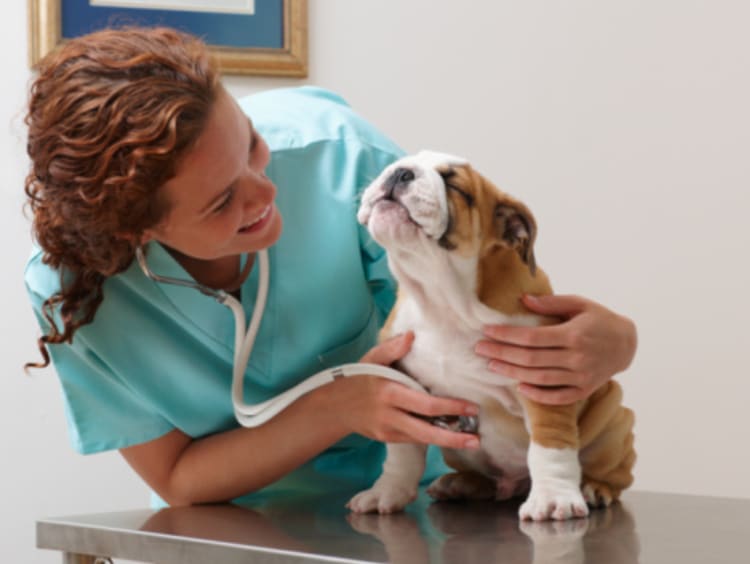Why Vet Enterprise Is the Leading Choice for Top Quality Pet Care in Your Location
Why Vet Enterprise Is the Leading Choice for Top Quality Pet Care in Your Location
Blog Article
Vaccination Guidelines From Your Trusted Veterinarian
Vaccination guidelines supplied by your trusted veterinarian play a critical duty in protecting your pet dog's health and wellness and wellness. Core vaccinations are basic for all animals, while non-core vaccines can be tailored to certain way of livings and ecological exposures. Comprehending the subtleties of inoculation routines, which begin as early as six to eight weeks, is crucial for optimum protection. In addition, addressing common mistaken beliefs bordering injections can additionally boost pet owners' self-confidence in these safety nets. As we discover these important elements, it comes to be increasingly clear why routine consultations with your vet are indispensable for notified decision-making.

Value of Vaccinations
Inoculations play a crucial function in protecting family pets versus an array of avoidable conditions. By boosting the body immune system to acknowledge and fight certain pathogens, vaccines substantially reduce the occurrence of infectious illness that can impact a pet dog's wellness and long life. Not just do inoculations shield private pets, but they also add to herd immunity, thus minimizing the total frequency of illness in the family pet population.
Timely vaccinations aid to minimize the spread of illness such as rabies, parvovirus, and distemper, which can have serious effects for both pets and humans. Inoculations are typically a demand for boarding facilities, brushing solutions, and dog parks, making them crucial for those who wish to socialize their family pets.

Core Vaccinations for Family Pets
While the certain vaccination demands of pet dogs can vary based on private variables, core injections are universally advised to secure versus the most typical and serious illness (Pet Health Checkup). Core injections are those deemed crucial for all family pets, no matter their lifestyle or geographic area, as they secure versus highly contagious and potentially fatal diseases
For dogs, the core vaccinations include those for canine distemper, parvovirus, adenovirus (hepatitis), and rabies. Canine distemper is a viral illness that affects the respiratory, intestinal, and nerve systems. Parvovirus is known for triggering serious intestinal illness, particularly in young puppies. Adenovirus can lead to liver condition, while rabies is a zoonotic illness that postures a danger to both pets and humans.
In felines, core vaccinations include feline panleukopenia, feline calicivirus, feline herpesvirus (rhinotracheitis), and rabies. Feline panleukopenia is a very contagious viral illness that influences the immune system and intestinal tracts. Calicivirus and herpesvirus are major factors to upper breathing infections in felines, while rabies stays a critical concern for public health and wellness.
Speak with your vet to guarantee your pets obtain their core inoculations on time.
Non-Core Vaccines Explained
Non-core vaccines are tailored to deal with specific dangers associated with an animal's way of living, environment, and exposure to specific conditions. Unlike core why not find out more vaccinations, which are generally advised for all animals, non-core injections are considered based on specific scenarios. These injections are specifically crucial for family pets that might encounter unique pathogens as a result of their geographical area, traveling habits, or activities.
Instances of non-core vaccinations include those for Bordetella bronchiseptica, which is connected to kennel coughing, and Lyme disease, brought on by ticks. Family pets that frequently connect with various other animals, such as those in boarding centers, pet dog parks, or brushing environments, may profit from Bordetella inoculation. Likewise, if you live in an area where Lyme condition prevails, vaccinating against this disease can be a sensible choice for outdoor-loving canines.
Various other non-core injections may include those for leptospirosis, check here canine influenza, and feline leukemia, relying on the certain risk variables present. It is vital to have a detailed conversation with your vet regarding your family pet's way of living and the possible requirement for these injections, making certain a tailored vaccination technique that finest secures your furry buddy.
Inoculation Schedule Review

As pet dogs mature, it is essential to follow the recommended booster inoculations. Pet Vaccinations. For grown-up pets, core injections are normally offered each to 3 years, relying on the details vaccination and regional guidelines. Non-core vaccinations might be encouraged based upon lifestyle aspects and regional disease prevalence, demanding a tailored strategy
Routine vet check-ups are essential for upgrading vaccination timetables. Your vet can offer assistance on the most appropriate immunizations for your pet dog, considering age, health and wellness status, and ecological threats. By remaining positive and notified, pet proprietors can ensure their fuzzy companions receive timely and effective vaccinations, thereby securing their wellness and wellness throughout their lives.
Typical Myths Regarding Injections
Misunderstandings regarding family pet vaccinations can cause complication and unwillingness among pet proprietors pertaining to the immunization process. One widespread misconception is that vaccinations are unnecessary for interior family pets. While it holds true that interior animals face lower dangers, check they are not totally unsusceptible to diseases, as virus can be introduced through different methods, consisting of human garments and other pet dogs.
Another false impression is that vaccines can trigger the illness they aim to protect against. Actually, most vaccines have suspended or attenuated pathogens, which can not create disease in healthy animals. Some animal proprietors additionally believe that their family pets need to not be immunized if they are currently healthy; however, vaccinations are a positive procedure that helps protect against the onset of ailment.
Additionally, lots of pet dog proprietors are afraid that injections will certainly lead to lasting health problems. The advantages of vaccination-- shielding animals from potentially life-threatening diseases-- much surpass the threats.
Conclusion
In summary, adherence to vaccination standards is critical for guaranteeing the health and wellness and longevity of pet dogs. Core injections offer important defense against significant conditions, while non-core vaccines resolve certain risks based upon specific way of livings. Developing a detailed inoculation schedule, combined with routine veterinary check-ups, promotes optimal health administration. Resolving typical myths surrounding vaccinations further enhances the importance of educated decision-making in pet dog care. Inevitably, a proactive method to vaccinations is important for keeping animal well-being.
Not only do vaccinations secure individual pets, but they also add to herd resistance, thus minimizing the general occurrence of diseases in the family pet population.
Misunderstandings about animal vaccinations can lead to confusion and hesitation amongst animal proprietors pertaining to the immunization procedure. While it's real that indoor pets encounter lower risks, they are not completely immune to conditions, as microorganisms can be introduced via various means, consisting of human clothing and various other pet dogs.
Some animal owners also think that their family pets ought to not be vaccinated if they are currently healthy and balanced; nevertheless, vaccinations are a positive step that aids protect against the beginning of health problem.
The advantages of inoculation-- protecting animals from possibly dangerous illness-- far exceed the threats.
Report this page